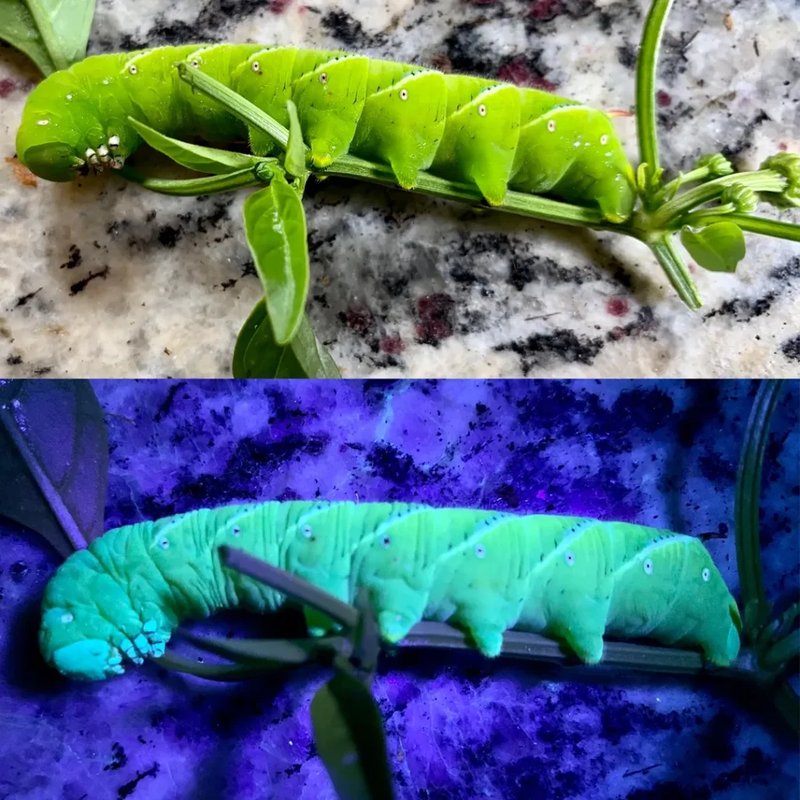
These natural predators of hornworms are like the unsung heroes of the garden. They work behind the scenes, helping us maintain a healthy ecosystem without the need for harsh chemicals. Think of them as the friendly neighborhood watch for your plants, swooping in to keep the bad guys at bay. In this article, we’ll explore the various natural enemies of hornworms, how they contribute to a balanced garden, and ways you can encourage their presence to protect your plants effectively.
What Are Hornworms?
First things first, let’s get familiar with hornworms themselves. These caterpillars, especially the tomato hornworm and the tobacco hornworm, are the larvae of moths. They can grow to about 4 inches long, sporting a distinctive horn-like protrusion at their rear end, which gives them their name. These little guys are typically green, making them quite good at hiding among the foliage.
They love to feast on plants in the nightshade family, particularly tomatoes and peppers. If you’ve noticed holes in your leaves or bare branches occasionally, you might just have a hornworm party happening in your garden. But don’t worry; while they can cause quite a bit of damage, nature has a way of balancing things out with their natural enemies.
Top Natural Predators of Hornworms
There are several creatures that view hornworms as a tasty treat. Here are the most effective predators you’ll want to welcome into your garden:
1. Birds
Believe it or not, birds are one of the biggest threats to hornworms. Many species will happily snack on these caterpillars when they spot them. In particular, songbirds, such as warblers and wrens, are keen hunters of hornworms.
To attract birds, you can set up birdhouses and feeders in your garden. Think of it like throwing a garden party, where you provide snacks and shelter for your feathered friends. The more birds that visit, the better your chances of keeping hornworms at bay!
2. Parasitic Wasps
Parasitic wasps are perhaps the most fascinating natural predator of hornworms. These tiny wasps, like the Cotesia congregata, lay their eggs inside the hornworms. When the larvae hatch, they start feeding on the hornworm from the inside out. Yes, that sounds a bit gruesome, but it’s nature’s way of controlling the hornworm population.
To encourage these helpful wasps, you can plant a variety of nectar-rich flowers. They love flowers like dill, fennel, and yarrow. Providing these plants creates a welcoming environment for the wasps, helping them thrive and keep hornworms in check.
3. Ground Beetles
Ground beetles might not be the first creatures that come to mind when you think of pest control, but they play a significant role in battling hornworms. These beetles are voracious predators, munching not just on hornworms but on other garden pests too.
To attract ground beetles, you can create a rich habitat for them by adding mulch and keeping your garden littered with organic matter. Just like keeping a tidy house invites guests, a cozy garden welcomes ground beetles to help with pest control.
How to Create a Hornworm-Friendly Environment
So, how do you encourage these natural predators to visit your garden regularly? It’s all about creating a welcoming environment. Here’s how:
- Plant diversity: A variety of plants attracts different predators. Include herbs, native plants, and flowers that bloom at different times to support a range of beneficial insects.
- Avoid pesticides: Chemical pesticides can harm beneficial insects. If you need to spray, opt for organic solutions that target only the pests without harming your allies.
- Maintain soil health: Healthy soil means healthy plants, which can better withstand pest attacks. Consider composting and crop rotation to keep your garden thriving.
By making these simple changes, you can help ensure your garden is a safe haven for those helpful predators while keeping hornworms at bay.
Other Pest Management Strategies
Now, while encouraging natural predators is essential, it’s good to have other strategies in your toolbox. Here are some additional methods you might find effective:
1. Hand-Picking
It might sound old-school, but hand-picking hornworms can be very effective. Just a few minutes of morning inspection can save your precious tomatoes. Look for the caterpillars and gently remove them. You can toss them into a bucket of soapy water to get rid of them—good riddance!
2. Traps
Consider setting up traps. A simple homemade trap can be made by placing a shallow dish filled with soapy water close to your plants. When hornworms fall in, they can’t escape.
Why These Predators Matter
Understanding the role of these predators isn’t just about protecting your garden—it’s about fostering an environmental balance. By promoting the natural enemies of hornworms, you’re also supporting the health of your entire garden ecosystem.
When you let nature do its work, you’re not just saving your plants from destruction. You’re creating a habitat that supports all kinds of beneficial wildlife. You might even find yourself enjoying the beauty and diversity of your garden even more. After all, it’s all part of the cycle of life!
In a nutshell, hornworms can be a gardeners’ nightmare, but they come with their own set of natural enemies that can help keep them in check. From birds to parasitic wasps and ground beetles, these predators play a vital role in maintaining your garden’s health. By welcoming these creatures and taking steps to support their presence, you can keep your plants safe without resorting to harsh chemicals.
So, next time you spot a hornworm, don’t just grab the pesticide. Take a moment to appreciate the larger picture, and think about how you can encourage those natural predators to do the heavy lifting for you. Happy gardening!

